Astronomy
-
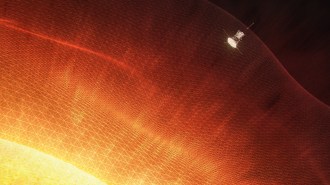 Astronomy
AstronomyThe Parker Solar Probe is the first spacecraft to visit the sun’s atmosphere
NASA’s Parker Solar Probe crossed a boundary between the sun’s atmosphere and interplanetary space that has been predicted for decades but never observed.
-
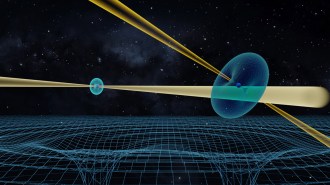 Astronomy
AstronomyThe only known pulsar duo sheds new light on general relativity and more
Einstein was right, among other insights gleaned from watching a one-of-a-kind system of two pulsating dead stars for 16 years.
-
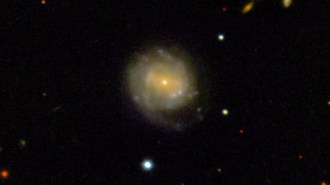 Astronomy
AstronomyThe cosmic ‘Cow’ may have produced a new neutron star or black hole
A bright, mysterious blast of extragalactic light appears to have spawned a small, compact object.
-
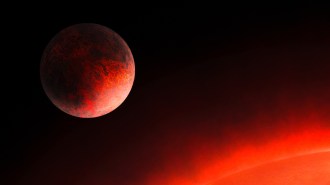 Planetary Science
Planetary ScienceThis tiny, sizzling exoplanet could be made of molten iron
A newly discovered exoplanet that whips around its star in less than eight hours is smaller than Earth, as dense as iron and hot enough to melt.
-
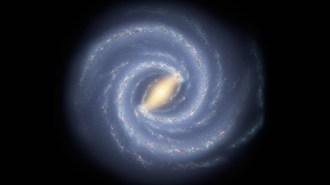 Astronomy
AstronomyAstronomers have found the Milky Way’s first known ‘feather’
Named for the glacier that feeds India’s longest river, the Gangotri wave spans up to 13,000 light-years and bridges two of our galaxy’s spiral arms.
-
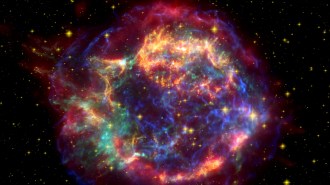 Astronomy
AstronomyHow massive stars in binary systems turn into carbon factories
A massive star with an orbiting partner star ejects on average twice as much carbon, an element crucial for life, into space compared with a solo star.
By Ken Croswell -
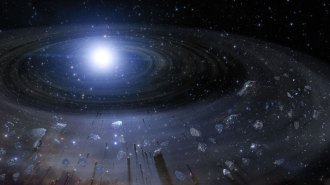 Astronomy
AstronomyDistant rocky planets may have exotic chemical makeups that don’t resemble Earth’s
Elements sprinkled on white dwarf stars suggest that the mantles of faraway rocky worlds differ greatly from their counterparts in our solar system.
By Ken Croswell -
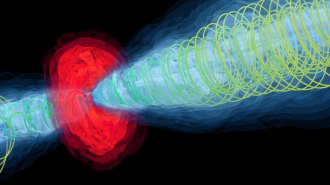 Space
SpaceA stunning simulation re-creates how M87’s black hole launches plasma jets
Two jets, thousands of light-years long, are re-created in a computer simulation, which suggests that M87’s black hole must be spinning rapidly.
-
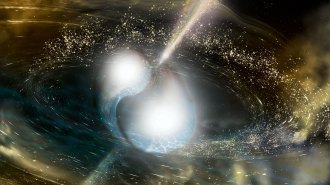 Physics
PhysicsNeutron star collisions probably make more gold than other cosmic smashups
Smashups of two neutron stars produce more heavy elements than when a black hole swallows a neutron star, calculations suggest.
-
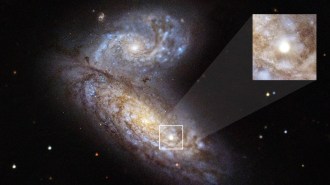 Space
SpaceA rush to watch a supernova exposed its last gasp before exploding
By studying the final years of stars, scientists hope to find clues to help them recognize when other stars are about to blow.
-
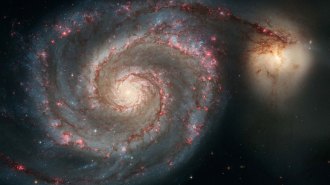 Astronomy
AstronomyAstronomers may have spotted the first known exoplanet in another galaxy
The spiral-shaped Whirlpool galaxy may be the host of the first planet spotted outside of the Milky Way.
-
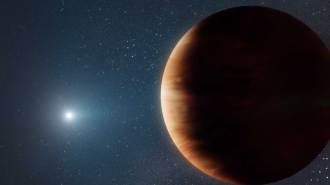 Astronomy
AstronomyA Jupiter-like planet orbiting a white dwarf hints at our solar system’s future
A new planet is the first ever discovered that is orbiting a white dwarf and resembles Jupiter in both its mass and its distance from its star.
By Ken Croswell